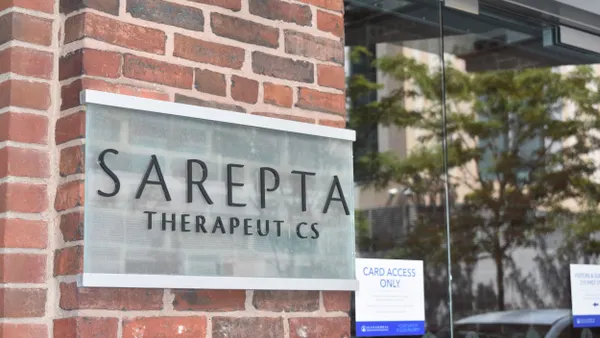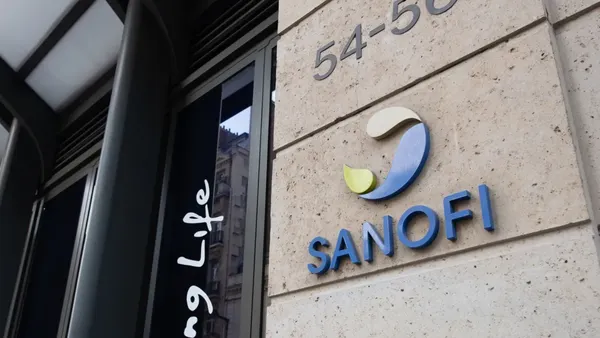Dive Brief:
- BioNTech’s experimental bispecific cancer drug pumitamig helped shrink tumors in three-quarters of people with small cell lung cancer who were enrolled in a Phase 2 trial, and stabilized disease in all of them, the company said Monday.
- Company executives said the study’s results at an interim data checkpoint confirmed the dose it has selected for an ongoing Phase 3 trial with chemotherapy in the “extensive stage” form of the disease that can’t be treated with surgery or radiation. That trial may not have data until 2028.
- Pumitamig, also known by the code-name BNT327, is a drug targeting the PD-1 immune pathway and the cancer growth driver VEGF, a hotly contested area of biotech development. Opdivo maker Bristol Myers Squibb signed a deal with Germany-based BioNTech to co-develop pumitamig for $1.5 billion upfront and $2 billion a year through 2028.
Dive Insight:
After a year of heightened expectations over the promise of drugs that co-target PD-1 and VEGF, some important mid- and late-stage datasets are emerging at the annual World Conference on Lung Cancer meeting. Summit Therapeutics’ closely watched ivonescimab delivered disappointing survival data from a Phase 3 trial in non-small cell lung cancer. Others, like pumitamig, have been following closely behind, however.
Physicians can now treat extensive stage small cell lung cancer with the PDL1-targeting immunotherapies Tecentriq from Roche and Imfinzi from AstraZeneca. Upon progression, they can choose another type of immunotherapy called Imdelltra from Amgen.
BioNTech and Bristol Myers believe the addition of a VEGF-inhibiting compoinent will help keep people with extensive-stage small cell lung cancer alive longer, and are testing that hypothesis with a head-to-head Phase 3 trial of pumitamig plus chemo against Tecentriq plus placebo.
The Phase 2 data should raise expectations of success. BioNTech said pumitamig plus chemotherapy shrank tumors in 76% of participants, including 85% in people receiving 20 milligrams per kilogram dose and 67% in those recieving 30 milligrams per kilogram. The disease control rate, which also includes study volunteers whose tumors didn’t shrink but their cancer got no worse, was 100%, as of an Aug. 7 data cut-off.
Participants who received the drug went a median of nearly sevena months without their cancer progressing. Trial investigators are evaluating how long study volunteers live after receiving pumitamig, but have not collected enough data to measure that.
“The response rate and early progression free survival we are seeing in this interim analysis are encouraging and merit further investigation in a larger trial to validate pumitamig’s potential to offer patients more durable anti-tumor responses relative to current standard of care,” lead investigator John Heymach, who is chair of thoracic, head and neck medical oncology at The University of Texas MD Anderson Cancer Center, said in a statement provided by BioNTech.















